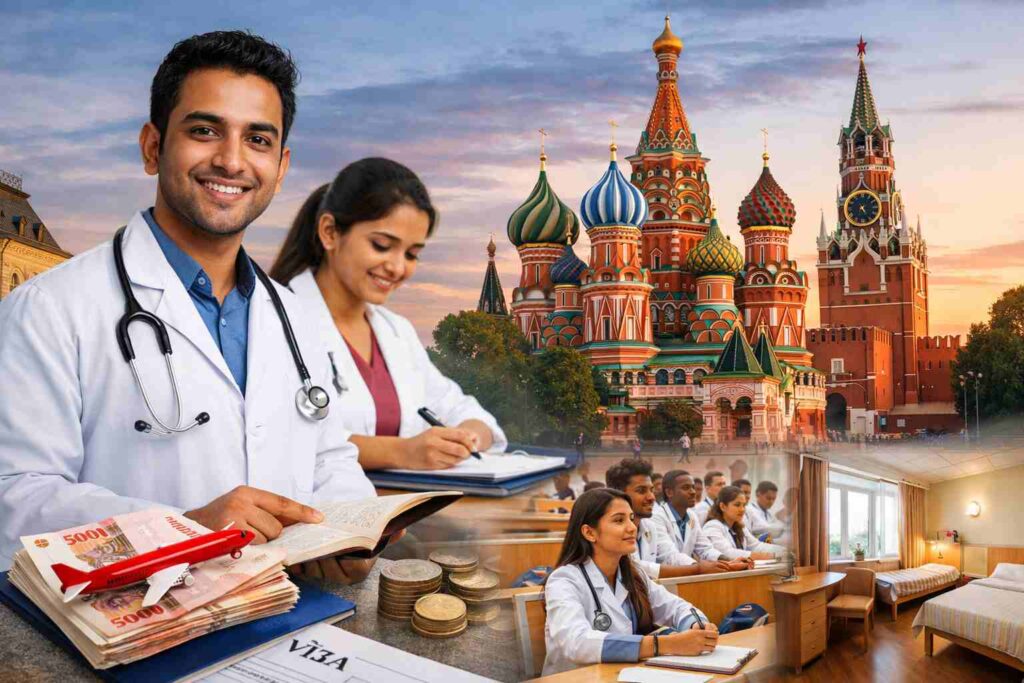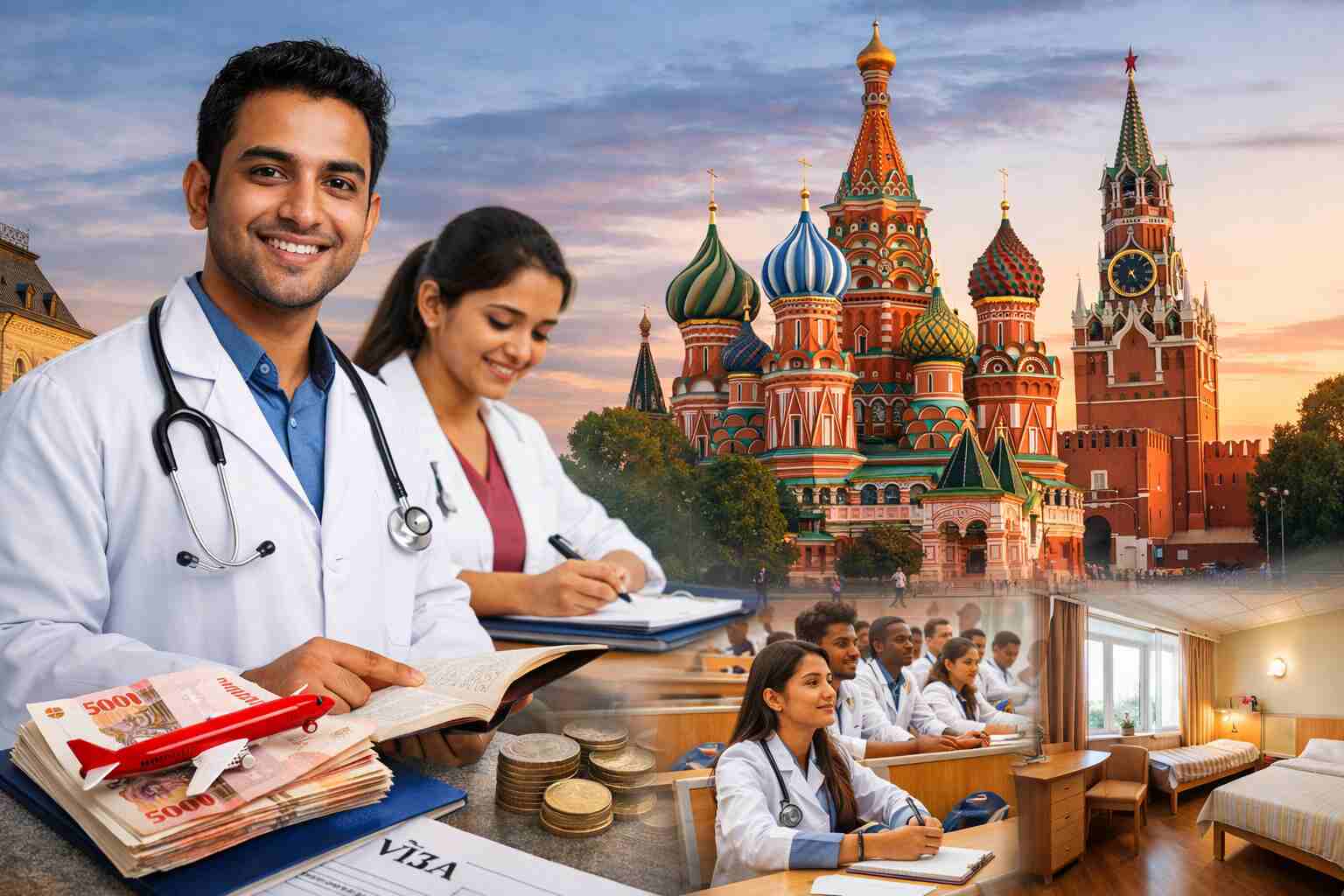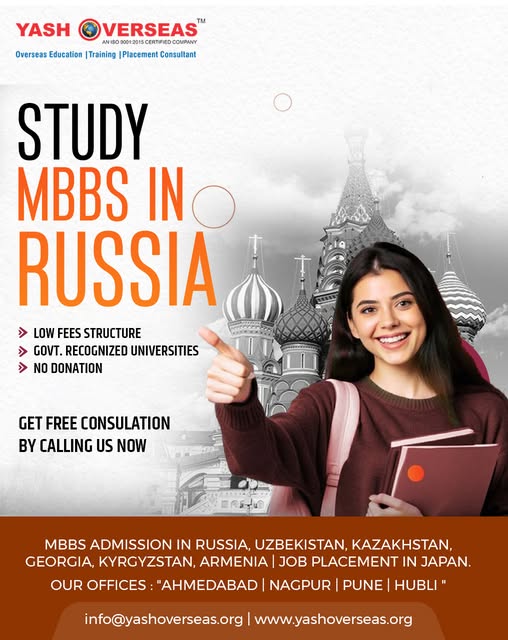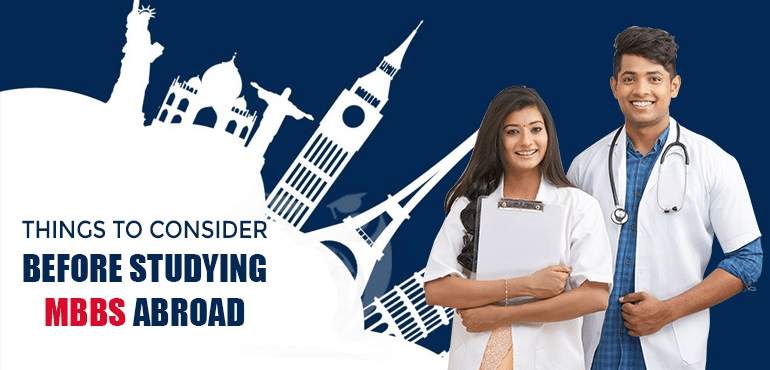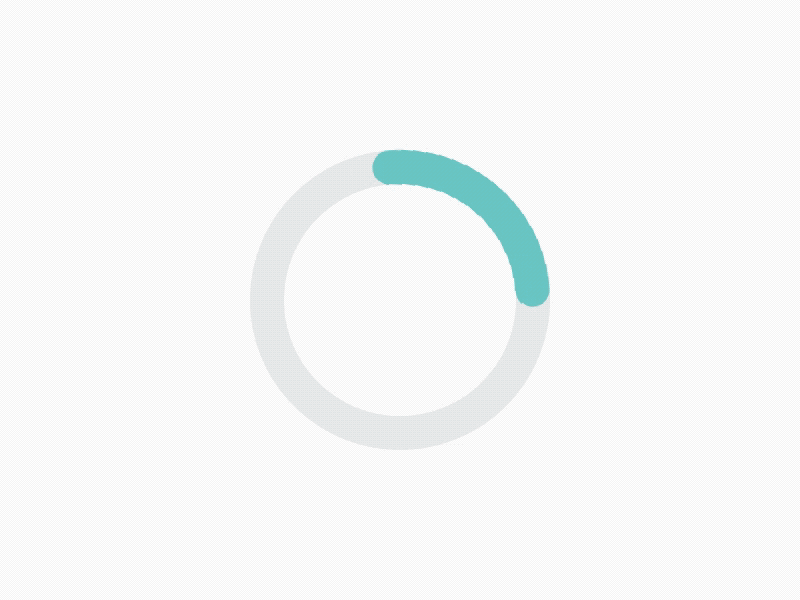Career Options After MBBS in Russia
Career Options After MBBS in Russia - A Complete Guide for Indian Students
Choosing to study MBBS in Russia has been one of the most preferred options among Indian students who want to be doctors. Russia has internationally recognized universities, low costs, courses in English, and good quality education, hence drawing thousands of foreign medical aspirants annually. However, after finishing the MBBS in Russia trip, the question that presents itself is; after completing MBBS in Russia, what are the career opportunities after MBBS in Russia?
The guide will enable you to investigate the various career opportunities available to you upon successfully completing your MBBS in Russia, regardless of whether you want to practice in India, settle in a foreign country, or further your education.
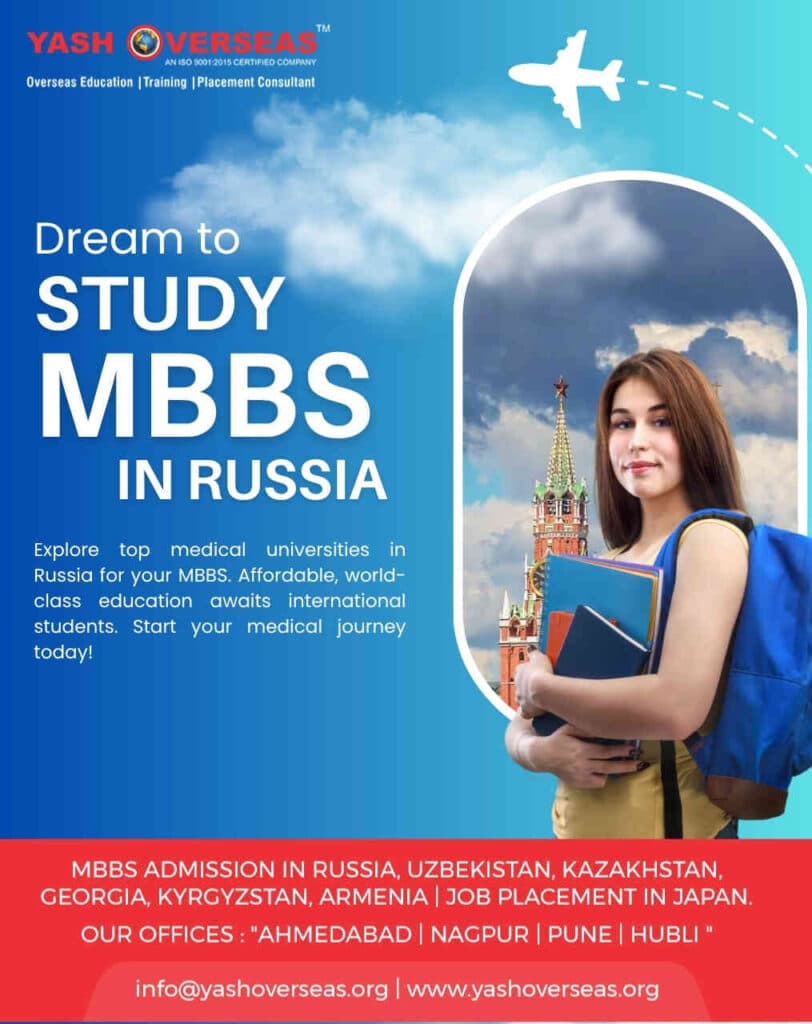
1. Practicing Medicine in India (Post FMGE/NExT Exam)
The most frequent ambition of Indian students who have studied MBBS in Russia is to go back home and practice medicine in India. As the MBBS degree of Russia is recognized by the National Medical Commission (NMC), its graduates must pass the Foreign Medical Graduate Examination (FMGE) or an upcoming test known as the National Exit Test (NExT).
FMGE/NExT Exam: This is a screening test that assures the Indian standards for foreign medical graduates.
Internship Requirement: On passing the exam, students are required to complete a one-year mandatory internship in India.
Permanent Registration: Candidates receive their license to practice in India once they pass the internship and FMGE/NExT.
👉This is the best route to be taken by those who want to establish their careers in India and have a chance in hospitals, clinics, or even in private practice.
2. Higher Education (Postgraduate Studies) in India.
Russia has graduates of MBBS who prefer to obtain postgraduate medical education (MD/MS) in India. Admission is on the basis of the NEET-PG exam, which is very competitive yet provides the path to specialization in areas like:
General Medicine
Pediatrics
Gynecology
Surgery
Radiology
Dermatology
Doctors with a specialization are able to develop their competency and increase their chances of employment in the government and the private hospital sector.
3. Practicing Medicine Abroad
The MBBS is an RU degree that is accepted worldwide by WHO, ECFMG, UNESCO, and other medical authorities and provides students with the opportunity to work in a number of countries after passing the local license exams.
United States: To practice in the USA and receive residency, students may take the USMLE (United States Medical Licensing Examination).
United Kingdom: In the UK, medical registration can be done by taking the PLAB (Professional and Linguistic Assessments Board) test by graduates.
Australia: the students must successfully pass the AMC (Australian Medical Council) Exam in order to practice medicine in Australia.
Canada: Medical graduates have an opportunity to appear at the MCCEE/MCCQE exams.
Gulf Countries (UAE, Saudi Arabia, Qatar, etc.): In these areas, there are many Indian doctors who have a Russian MBBS degree and have passed local exams.
👉 This alternative will suit students who need higher salaries, better facilities, and exposure to other countries.
4. Studying post-graduates in a different country
The other great alternative to MBBS in Russia is to pursue higher education in a foreign country. Examples of some common paths are:
After the USMLE, eligibility to practice law and be licensed as a registered nurse in any US state is granted to the student via the USA (Residency Program).
UK (Postgraduate Medical Courses following PLAB)
Germany (German proficiency Specialization in Medicine)
Canada (Residency Programs including MCCQE exams)
These postgraduate programs provide quality training and research as well as good salaries.
5. Research and Academics
Academia is a career choice that students who are highly interested in medical research can choose. In Russia, applying to a PhD or research-based medicine and allied sciences is an opportunity available to anyone. Research careers may involve positions in:
Pharmaceutical companies
Medical projects funded by the government.
Professional Teaching and research at universities.
International nongovernmental organizations such as the WHO, UNICEF, or NGOs.
6. Collaboration with International Organizations.
Graduates can be employed to serve international organizations in community medicine, public health, or humanitarian healthcare. There exist opportunities in:
World Health Organization (WHO).
United Nations (UN)
Doctors Without Borders (MSF)
Red Cross
It is a satisfying career path among the students who desire to be involved in global health and humanitarian work.
7. Hospital Management/Healthcare Administration.
Other graduates of MBBS are inclined to transition to healthcare administration. Doctors with an MBA in Hospital Management or Healthcare Management are able to accept managerial positions in hospitals, healthcare organizations, and insurance providers.
This career option offers:
High-paying jobs
Healthcare leadership.
Both domestic and international opportunities.
8. Starting a Private Clinic/ Healthcare Set-up.
Once licensed in India or elsewhere, a significant number of doctors establish their own clinic, diagnostic center, or hospital. This provides:
Liberty and freedom.
Professional development over a long period of time.
An available chance to benefit local communities.
9. Other career options in Russia after MBBS
Other graduates of the MBBS consider other career options other than in clinical practice, which include:
Medical Writing and Journalism – Production of medical company content, journals, and media.
Medical Tourism- Helping foreign patients who wish to be treated in India or other countries.
Pharmaceutical Industry- Pharmaceutical Industry job involved working in drug development, clinical trials and regulatory affairs.
Health Tech Startups – Data consists of joining healthcare apps, AI medical solutions, and telemedicine companies.
The achievement of an MBBS in Russia is only the first step to a bright medical career. The degree gives a large variety of career opportunities- working as a physician in India or even a foreign country, postgraduate study, research, medical management, or even becoming an entrepreneur.
The correct decision will be based on your professional objectives, financial strategies, and personal interests. You could want to transform into a specialist doctor, join international health groups, or just become a leader in hospital management. The possibilities of MBBS in Russia are endless.
Career Options After MBBS in Russia Read More »


